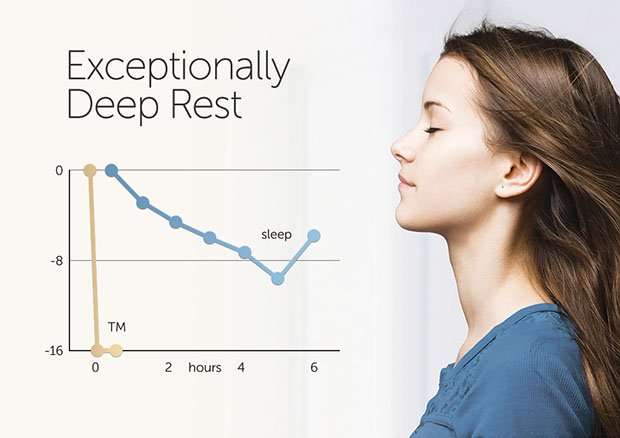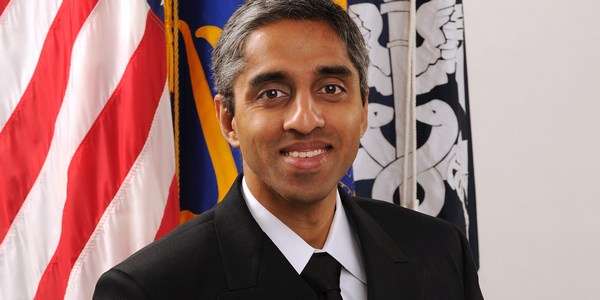Perhaps the most important scientifically proven health benefit of the Transcendental Meditation technique is its positive effect on stress. This is good news to patients diagnosed with Multiple Sclerosis, a condition aggravated markedly by stress and anxiety.
Here are two stories from people whose daily meditation practice makes it easier to live with MS.
Ben’s story
Ben (35) was diagnosed with Multiple Sclerosis. He felt constantly weak and tired, had problems with balance and malaise, and strong spasms in his right leg.

As if this wasn’t enough, Ben started to notice aching and loss of vision in his left eye. Knowing that MS can cause lasting damage to the optic nerve, he felt severely depressed and anxious.
Ben was admitted to a hospital in Florida Tests performed revealed abnormalities in spinal fluid and MRI brain scan, which were consistent with his diagnosis of MS.
Upon being discharged from the hospital, his physician advised him that nutritional supplements and dietary approaches would not alter the course of the disease. He was given a prescription for Xanax, a strong tranquilizer with a substantial risk of misuse and dependence.
Three weeks later, he arrived at the Raj Ayurveda Health Center in Fairfield, Iowa — already in a wheelchair.
Initial examination revealed abnormalities of the left eye and optic nerve, abnormal reflexes in both legs, with weakness and lack of coordination in both legs and severe difficulty walking.
Ben underwent a treatment program which included Ayurveda purification, dietary changes, learning the Transcendental Meditation technique, yoga, and specific herbal preparations. By the end of his stay, he could walk 800 yards unassisted.
Nearly twelve years after his first in-residence program, Ben continues to follow the natural approach to Multiple Sclerosis treatment, including his Transcendental Meditation practice, Ayurvedic diet and herbal preparations.
Ben has not experienced any symptoms of relapse; he now walks two miles daily, lifts weights and describes himself as ‘having a positive attitude without depression or anxiety’. His energy level is good and he is working full-time as a massage technician.
Cheryl’s story
Cheryl has had MS for over 30 years. She provides a real insight into how knowledge of the disease has progressed immensely during this time.
 “I was diagnosed in March 1983,” Cheryl recalls. “At the time, I was a marketing assistant at a magazine, in NYC and used an electric typewriter. (You can find them in museums.) One day I noticed that I was making an unusual amount of errors. I also had numbness in my hands and a feeling of an electrical charge down my spine when I bent my neck forward.
“I was diagnosed in March 1983,” Cheryl recalls. “At the time, I was a marketing assistant at a magazine, in NYC and used an electric typewriter. (You can find them in museums.) One day I noticed that I was making an unusual amount of errors. I also had numbness in my hands and a feeling of an electrical charge down my spine when I bent my neck forward.
“There were no MRI’s back then, so diagnosis was made with a mylogram and spinal tap and I spent two weeks in the hospital! My doctor said he thought it was MS but only time would tell.
He gave me steroids to arrest the symptoms. Nine months after my daughter was born in 1985, I lost the eyesight in one eye. I was again given steroids and my eyesight came right back. This time I had my first MRI and was given a definitive diagnosis of MS.
It wasn’t until 1999 that I had another exacerbation (weakness in my legs) while working on a Masters in Divinity at Princeton Theological Seminary that I found another doctor who put me on Avonex. I use Avonex for 3 years, then was switched to Rebif. I just recently started taking Tecfidera because I was running out of injection sites…
I practice Yoga and Transcendental Meditation. This, with prayer, helps with the stressors of work and life in general.
I work out a at gym to keep my muscles strong. I also take a multiple vitamin, vitamin D, cranberry supplements (to keep UTI’s in check) and omega 3 fatty acids daily.
All in all, I can proudly say: “I have MS but MS doesn’t have me!””

Sources:
Raj Ayurveda Health Center
Modern Day MS: Meet Cheryl

















